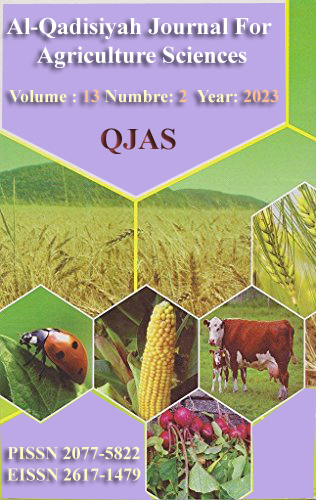Abstract
Recent studies have verified the importance of adopting CSA practices to reduce greenhouse gases (GHGs), combat climate change, and boost food security and farmers welfare. However, there have been few studies that have examined the causal impact of CSA practices on household income. This paper assesses the impact of adoption of CSA practices on farming households’ income in Northern Nigeria. Our sample consists of cross-sectional data of 480 (160 adopters and 320 non-adopters of CSA) rural farming households selected using randomize control trial (RCT) from three Northern States in Nigeria. This study employed propensity score matching (PSM) to establish the causal effect of adoption of CSA on households’ income while inverse probability-weighted regression adjustment (IPWRA) was used to controlled for selection bias that may arise from both observed and unobserved factors. We found that, age, education, farm size, access to extension, membership of association, and access to climatic information are positive and statistically significant influencing adoption of CSA practices among farming households. The empirical findings revealed that adoption significantly impacts the farming households’ income across the two estimators used. This highlights the importance of promoting adoption of CSA practices among rural farming households. Our findings emphasize that enlightenment campaign on CSA practices, access to extension and climate information, education of farming households, the size of farmland cultivated and group formation should be promoted in order to scale up its adoption and increase households’ income.
Keywords
Adoption
Climate-Smart Agriculture
Matching
Abstract
وقد أكدت الدراسات الحديثة أهمية تبني ممارسات الزراعة الذكية مناخيًا للحد من غازات الاحتباس الحراري، ومكافحة تغير المناخ، وتعزيز الأمن الغذائي ورفاهية المزارعين. ومع ذلك، كانت هناك دراسات قليلة فحصت التأثير السببي لممارسات الزراعة الذكية مناخيًا على دخل الأسرة. يقيم هذا البحث تأثير تبني ممارسات الزراعة الذكية مناخيًا على دخل الأسر الزراعية في شمال نيجيريا. تتكون عيّنتنا من بيانات مقطعية لـ 480 أسرة زراعية ريفية (160 من المتبنين و 320 من غير المتبنين للزراعة الذكية مناخيًا) تم اختيارها باستخدام تجربة التحكم العشوائية (RCT) من ثلاث ولايات شمالية في نيجيريا. استخدمت هذه الدراسة مطابقة درجات الميل (PSM) لتحديد التأثير السببي لتبني الزراعة الذكية مناخيًا على دخل الأسر بينما تم استخدام تعديل الانحدار المرجح بالاحتمال العكسي (IPWRA) للتحكم في تحيز الاختيار الذي قد ينشأ عن العوامل الملحوظة وغير الملحوظة. وجدنا أن العمر والتعليم وحجم المزرعة والوصول إلى الإرشاد والعضوية في الجمعيات والوصول إلى المعلومات المناخية هي عوامل إيجابية وهامة إحصائيًا تؤثر على تبني ممارسات الزراعة المدعومة من المجتمع بين الأسر الزراعية. وكشفت النتائج التجريبية أن التبني يؤثر بشكل كبير على دخل الأسر الزراعية عبر المقدرين المستخدمين. وهذا يسلط الضوء على أهمية تعزيز تبني ممارسات الزراعة المدعومة من المجتمع بين الأسر الزراعية الريفية. وتؤكد نتائجنا على أنه يجب الترويج لحملة التوعية بشأن ممارسات الزراعة المدعومة من المجتمع والوصول إلى الإرشاد والمعلومات المناخية وتثقيف الأسر الزراعية وحجم الأراضي الزراعية المزروعة وتكوين المجموعات من أجل توسيع نطاق تبنيها وزيادة دخل الأسر.
Keywords
التبني، الزراعة الذكية مناخيا، تقنية المطابقة
